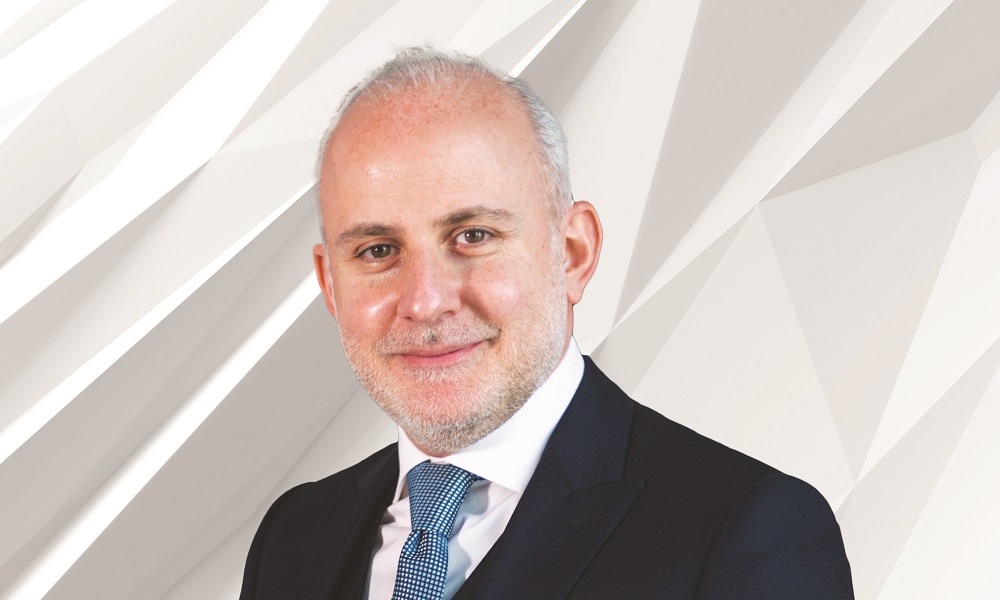With cities and countries coping with the challenge of increasing urbanisation and a desire for a low-carbon future, how is ABB answering the call?
At ABB, we are committed to working in collaboration with our customers and suppliers to reduce their own emissions, as we aim to achieve carbon neutrality in our own operations by 2030.
By far the biggest impact we can have in reducing greenhouse gas emissions is through our market leading technologies, which reduce energy use in industry, buildings, and transport – sectors that together account for nearly three-quarters of global energy consumption. As part of our 2030 Sustainability Strategy, ABB has set itself the ambitious target of helping customers to reduce their annual CO2 emissions by more than 100 megatons by 2030. This is equivalent to the annual emissions of 30 million combustion cars. A great example of this energy saving in action is our variable speed drives for electric motors that can reduce electricity consumption by up to 25 percent.
ABB also wants to lead by example by achieving carbon neutrality in its own operations. We will do this by continuing to transition to renewable sources of energy, improving energy efficiency across our factories and sites, and converting our vehicle fleet to electric or other non-emitting alternatives.
We have currently identified areas that can reduce our CO2 emissions by at least 80% and as technologies evolve, we will continuously seek opportunities to do more. By 2019, 30% of the electricity consumed by ABB was generated by renewables and we had cut our emissions by more than 40% compared with a 2013 baseline.
ABB’s commitment to protect the environment is evidenced by its investment and research on e-mobility where we are now the global market leader in e-mobility charging solutions while developing our market share in Europe, Asia Pacific and the US. Further investments such as a new global R&D centre in the Netherlands and the acquisition of Chargedot are helping to cement our position in the market.
The current focus is not just on the research and development of new and innovative charging technologies, but also on the electrification of industrial and commercial fleets and how to adapt the load of the vehicle to the availability of energy in the grid. With these developments
ABB is leading the way to a zero-emission mobility future. In the region, we have also helped install the EV charging infrastructure across various countries like Oman, UAE, Saudi Arabia.
How can smart, digitally connected services and products help improve the efficiencies and performances of utilities, systems, and networks?
Being a leader in substation protection and control, ABB is on track to tackle the current challenges for the utility sector: integration of renewable energy, microgrids, energy storage, power conditioning and power quality.
At the centre of this is ABB Ability, our digital platform which combines ABB’s entire digital portfolio, bringing together over four decades of industrial digital leadership, advanced connectivity and the latest digital technologies.
This is being achieved through strategic investment in the development of a new generation of products capable of connecting with the cloud and other devices. From advanced diagnostics that prevent unplanned downtime to the control of individual coal-fired boilers to power plant fleets and to cybersecurity solutions, ABB Ability enables utility providers to know more, do more and do better, together.
A study of the evolution of the utility sector in Europe is a way to anticipate Middle East trends, which will see in the next few years. A decade ago, the utility sector used to largely be an integrated model, from conventional utility generation to distribution and supply. The energy landscape, as seen over the years, is a very diverse and impermanent sector. Specialised solutions are replacing aging utility distribution systems and we are also seeing the emergence of pure supply utilities, dedicated to dealing with energy.
Many European and Chinese utilities and investors are transforming the Middle East utility sector, while the speed of change will depend on the regulatory authorities.
How can the democratisation of data help improve operations and performance? What is ABB doing in this regard?
As mentioned, ABB Ability solutions allow our customers to combine ABB’s deep domain expertise with connectivity and software innovation to empower real-time, data-driven decisions for safer, smarter operations that maximise resource efficiency. Our extensive portfolio of digital solutions helps organisations automate, optimise and future-proof their business to achieve new heights of performance and drive sustainable progress.
What are some of the projects ABB is working on and how are they examples of utilising digitally connected services and solutions to create a smarter future?
In the UAE, we work across buildings, utility firms, oil and gas installations and food and beverage manufacturers to help our customers such as VTTI Fujairah Terminals, Sharjah Electricity and Water Authority (SEWA) and Pure Harvest Farms to understand their energy consumption and manage their energy needs.
ABB Ability Energy and Asset Manager, built on Microsoft Azure, increases operational resilience and energy efficiency from the ground up.
This intelligent cloud solution provides real-time data on energy consumption, power quality, and the health of your electrical system equipment – all in one intuitive dashboard.

